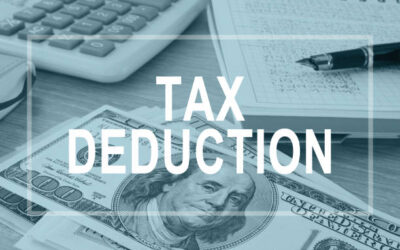Blog
Medical, Dental, and Health Deductions and Expenses
Medical, Dental, and Health Deductions and Expenses
Did you know that you may be able to deduct expenses you pay for someone who is not claimed as a dependent? This week’s tip is about medical expenses and deductions that some people are unaware of. For instance, Dave provided over one-half of his mother’s support for the past year, so he can include the medical expenses he paid for her.
Below is an excerpt from the IRS about medical expenses:
“Medical care expenses include payments for the diagnosis, cure, mitigation, treatment, or prevention of disease, or payments for treatments affecting any structure or function of the body.”
Medical care expenses include the insurance premiums you paid for policies that cover medical care or for a qualified long-term care insurance policy covering qualified long- term care services.
If you are self-employed and have a net profit for the year, you may be able to deduct (as an adjustment to income) the premiums you paid on a health insurance policy covering medical care, including a qualified long-term care insurance policy that covers medical care for yourself, your spouse and dependents.
To your advantage, you can also deduct some medical expenses paid for, even if you are not ill. In a ruling issued since 2007, the IRS concluded some unreimbursed medical expenses are deductible, even if you incur them when you are not sick. Examples include your annual physical check-ups, body scans, and pregnancy test kits.
Medicine you buy without a doctor’s prescription is usually non- deductible; however, items such as crutches, braces, elastic hosiery, and blood sugar tests do qualify as expenses. Home health care items such as walkers, bed and chair lifts, and compression hoses also qualify as expenses.
If you, your spouse, or a dependent attend a conference relating to your chronic disease, the registration fee and travel expenses are deductible. Travel costs for medical care or treatments are also deductible, as are the travel costs for a caregiver who goes with you for care or treatment. Bob and Sharon live in Phoenix, Az and travel to San Diego, where they both grew up, to see their family dentist twice a year, and deduct the travel and treatment costs of the dental trip.
Let’s look at some of the many medical care costs you may be able to deduct.
Deductible medical expenses may include, but are not limited to:
- Payments of fees to doctors, dentists, eye doctors, surgeons, chiropractors, psychiatrists, psychologists, and nontraditional medical practitioners.
- Payments for in-patient hospital care or nursing home services, including the cost of meals and lodging, charged by the hospital or nursing home.
- Payments for acupuncture treatments or inpatient treatment at a center for alcohol or drug addiction, for participation in a smoking-cessation program and for drugs to alleviate nicotine withdrawal that require a prescription.
- Payments to participate in a weight-loss program for a specific disease or diseases, including obesity, diagnosed by a physician but not ordinarily, payments for diet food items or the payment of health club dues. Health club dues may be deductible. See your tax professional for specifics.
- Payments for insulin and payments for drugs that require a prescription.
- Payments for admission and transportation to a medical conference relating to a chronic disease that you, your spouse, or your dependents have (if the costs are primarily for and essential to necessitated medical care). However, you may not deduct the costs for meals and lodging while attending the medical conference.
- Payments for false teeth, reading or prescription eyeglasses or contact lenses, hearing aids, crutches, wheelchairs, and for service animals for the blind or deaf (including all costs for feeding, housing, care and medical costs, of service animals).
- Payments for transportation primarily for and essential to medical care that qualify as medical expenses, such as, payments of the actual fare for a taxi, bus, train, or ambulance or for medical transportation by personal car, the amount of your actual out-of-pocket expenses such as for gas and oil, or the amount of the standard mileage rate for medical expenses, plus the cost of tolls and parking fees.
- If you are a business owner, partner, or shareholder of an S-Corporation you can deduct your health insurance premiums (including Medicare insurance) on your tax return, even if you don’t itemize deductions.
You may deduct as an expense any medicine or drug that is a prescribed drug (determined without regard to whether such drug is available without a prescription) or is insulin. A “prescription” means a written or electronic order for a medicine or drug that meets the legal requirements of a prescription in the state in which the medical expense is incurred and that is issued by an individual who is legally authorized to issue a prescription in that state.
You can only include the medical expenses you paid during the year. Your total deductible medical expenses for the year must be reduced by any reimbursement of deductible medical expenses. It makes no difference if you receive the reimbursement or if it is paid directly to the doctor, hospital, or other medical provider. Any reimbursement from employer, or insurance reduces your medical expense deduction.
Non-deductible items are:
You may not deduct funeral or burial expenses, over-the-counter medicines, toothpaste, toiletries, cosmetics, a trip or program for the general improvement of your health, or most cosmetic surgery (unless it’s a result of injury, illness, or physical damage). You may not deduct amounts paid for nicotine gum and nicotine patches, which do not require a prescription.
Important points to remember are:
- Medical, dental, eyecare or healthcare expenses paid (family, self, children or other dependents)
- Diagnostic procedures (body scans, pregnancy tests, and annual physical check-ups)
- Non-prescription equipment and supplies (crutches, braces, blood sugar tests, and walkers)
- Medical conferences and travel to and from (if relating to your chronic disease)
- Gym memberships (If a doctor gives you a prescription for weight loss, rehab, or to correct an injury, illness, or accident. You cannot already belong to a gym.)
- Fees paid to Acupuncturists, Chiropractors, and Therapists (if related to a medical condition)
- Medical travel to and from providers (even if accompanied with a care giver)
- Caregivers who aid in home and work (because of a medical condition)
- Business owners, partners and shareholders of S-Corporations can deduct health insurance (incudes Medicare premiums) on your tax returns
Related Blog Posts
Tips for Farmers and Farm Tax Returns
Learn how to pass on more of your wealth to your heirs and pay less to the government before it's too late! Click here...Address & Map(602) 264 - 9331CLIENT PORTALAddress & Map(602) 264-9331 Bringing food to the plate matters. So those who toil hard to...
Deductions allowed when you do not itemize
Learn how to pass on more of your wealth to your heirs and pay less to the government before it's too late! Click here...Address & Map(602) 264 - 9331CLIENT PORTALAddress & Map(602) 264-9331[DISPLAY_ULTIMATE_SOCIAL_ICONS] There are lines and then there...
Basis, Capital Gains, and Losses
Learn how to pass on more of your wealth to your heirs and pay less to the government before it's too late! Click here...Address & Map(602) 264 - 9331CLIENT PORTALAddress & Map(602) 264-9331[DISPLAY_ULTIMATE_SOCIAL_ICONS] Now is the time to act smart,...
Do You Owe The IRS?
Learn 5 Secrets The IRS Doesn't Want You To Know.
Click on the button below to get FREE access to this exclusive content.
Get Expert Tax Advice from an expert
Mr. Hockensmith has been a guest newscaster for national and local TV stations in Phoenix since 1995, broadcasting financial and tax topics to the general pubic. He has written tax and accounting articles for both national and local newspapers and professional journals. He has been a public speaker nationally and locally on tax, accounting, financial planning and economics since 1992. He was a Disaster Reservist at the Federal Emergency Management Agency, for many years after his military service. He served as a Colonel with the US Army, retiring from military service after 36 years in 2008. Early in his accounting career, he was a Accountant and Consultant with Arthur Andersen CPA’s and Ernst & Young CPA’s.










